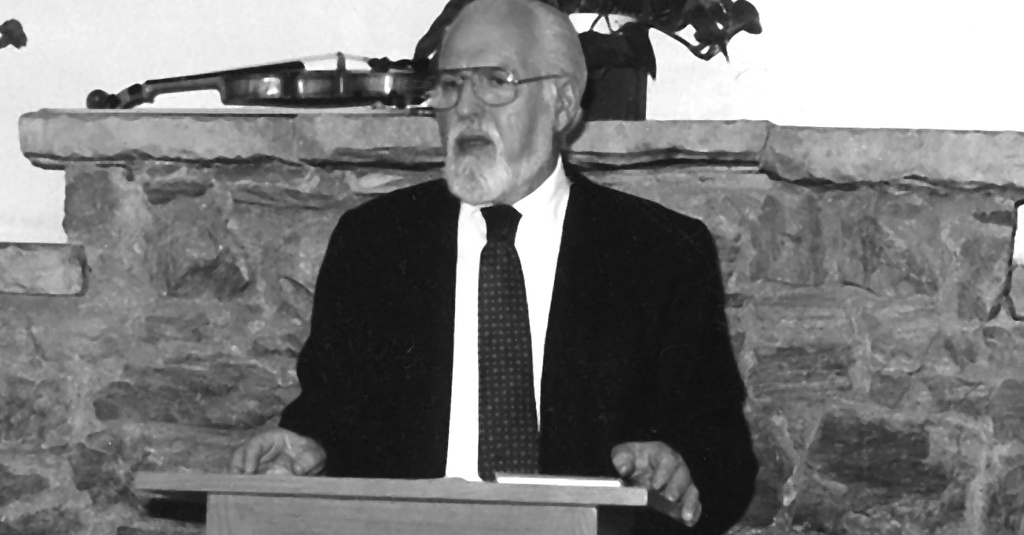
The Necessary Future
What the Bible requires is the kingdom of God, ruled by Biblical law, and Christ as the Savior-King. Attempts to make statism Christian are wrong. Both law and education must be Christian. Neither church nor state can save man, but both have their place under Christ and His Word, the Bible.

- R. J. Rushdoony
This is a subject I discussed often before Chalcedon was founded, and in the early years thereafter. I then stopped because I assumed everyone knew of my view, but I find that this is not now true. Hence this brief statement.
In the pre-Christian world, apart from Israel, the state was the central and saving institution. Man's hope was a statist hope. The good and saving life was a statist life, and man was hardly a person outside the state. The statist man was hardly a man. In Rome in early years, foreigners dwelled outside its walls, which legally made them non-persons.
Christianity challenged all this. It saw itself as a kingdom with a king, Jesus Christ, and a law-book, the Bible. Rome, normally tolerant of religions, could not tolerate Christianity because it was another and a rival state or empire.
The Roman Empire gave way to the Christian Empire, which was at first alien to cities as essentially pagan in concept. Feudal estates replaced cities.
In time, however, the Roman dream returned, now Christianized in the Roman Catholic Church. Europe now was a form of Roman Christianity, and imperialism. The Renaissance was an attempt to reform the Greco-Roman dream and to advance humanism also. This dream was for a brief time misunderstood by the Reformation and the Counter-Reformation, but, with the Enlightenment, the old pagan, statist dream was restored. We are now in the last days of the modern age of the state, and the twenty-first century will see it crumble.
What the Bible requires is the kingdom of God, ruled by Biblical law, and Christ as the Savior-King. Attempts to make statism Christian are wrong. (Neither the Republicans nor Democrats deserve a Christian label.) Both law and education must be Christian. Neither church nor state can save man, but both have their place under Christ and His Word, the Bible.
Our purpose must not be to capture church or state, but to place ourselves and all of society under our King.
Today both church and state are full of people with a minimal belief. They acknowledge God because they want to go to heaven. As for obeying God, it means mainly no major thefts, and usually an avoidance of adultery. They are not under God and His law but in their minimal faith to gain heaven.
In politics, both parties pay lip service to God while excluding Him and His law from the life of the nation. To see either party as a Christian's cause is a sin.
This twenty-first century will see the collapse of the statist faith. It will be a disaster for Christians to pin their faith in non-Christian politics. They will then die with the statist culture.

- R. J. Rushdoony
Rev. R.J. Rushdoony (1916–2001), was a leading theologian, church/state expert, and author of numerous works on the application of Biblical law to society. He started the Chalcedon Foundation in 1965. His Institutes of Biblical Law (1973) began the contemporary theonomy movement which posits the validity of Biblical law as God’s standard of obedience for all. He therefore saw God’s law as the basis of the modern Christian response to the cultural decline, one he attributed to the church’s false view of God’s law being opposed to His grace. This broad Christian response he described as “Christian Reconstruction.” He is credited with igniting the modern Christian school and homeschooling movements in the mid to late 20th century. He also traveled extensively lecturing and serving as an expert witness in numerous court cases regarding religious liberty. Many ministry and educational efforts that continue today, took their philosophical and Biblical roots from his lectures and books.